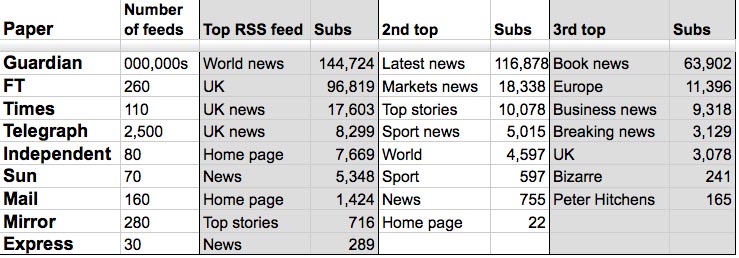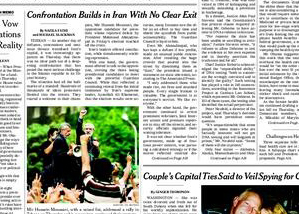The narrative is familiar to anyone who has followed the broader technology industry for any length of time – new triumphs over old.
The reality, inevitably, is more complex, more layered, more textured.
Certainly change is disruptive, but old technology rarely disappears completely. Rather it coexists with the new.
Just look around your office if you want proof of that.
You may not use the fax machine but someone does, and you’ve certainly sent a letter or made a call on the land line. Communication is not all mobiles, email and instant messaging.
As it is with technology, so it is with media.
And nothing demonstrates the laziness of the ‘winners and losers’ legend more than the domestic news story of the year – MPs’ expenses. Here we have seen the best of old and new media, one feeding off the other.
Let’s retrace our steps:
What was meant to be a public domain story, put there by a hard-fought freedom of information request, turned into an old-fashioned scoop.
The Daily Telegraph acquired the data and did a first class job poring over the numbers and putting in place an editorial diary for the drip-drip of expenses-related stories.
The first fruits of this were splashed across the front of the paper on Friday May 8 and, by my count, the story set – and led – the news agenda for the next 23 days.
To this point it was only a new media story in the sense that the Telegraph was enjoying an uplift in traffic – one in every 756 expenses-related searches led to the site.
But what the paper was offering was fairly conventional fare. It took others to do some really interesting things with it.
A fine example was work done by Lib Dem activist Mark Thompson who spotted a correlation between the safeness of an MP’s seat and the likelihood that they are involved in an expenses scandal.
Elsewhere, there were mash-ups, heat maps and the rest.
And then the deluge. Parliament released its data – albeit in redacted form – and for the first time the Daily Telegraph was in danger of losing ownership of the story to another newspaper.
True to type the Guardian offered the most interactive experience inviting readers to: “Investigate Your MPs expenses.”
Wired journalist Jeff Howe, the man credited with coining the phrase crowdsourcing, will nod approvingly at this development.
According to one definition Howe uses, crowdsourcing is ‘the act of taking a job traditionally performed by a designated agent (usually an employee) and outsourcing it to an undefined, generally large group of people in the form of an open cal’l.
In this instance the Guardian was taking a task traditionally performed by its journalists (designated agents) and outsourcing it to its readers.
Where the Telegraph did its own number-crunching, the Guardian farmed much of it to a third party, us.
So has the Guardian’s crowdsourcing experiment been a success?
On Sunday the paper boasted that almost 20,000 people had taken part, helping it to scour nearly 160,000 documents. So far so great. But by Wednesday, the number of documents examined by the army of volunteers was still 160,000.
With some 700,000+ receipts and other assorted papers to classify could it be that the Guardian’s efforts were running out of steam?
If they were, this didn’t stop its rival from following the lead.
One Telegraph correspondent may have dismissed those engaged in this kind of ‘collaborative investigative journalism’ as ‘Kool-Aid slurping Wikipedians’, but his paper seemed to take a different view.
By the middle of the week, the Telegraph was offering its far-less redacted expenses documents in PDF form and all its data in a Google spreadsheet, while simultaneously asking readers directly: “What have you spotted?”
Both papers – and the wider media come to that – have enriched our understanding of a complex and sprawling story. What started as a proprietorial scoop is now in the hands of the crowd.
Old media and new coexisting.
Jon Bernstein is former multimedia editor of Channel 4 News. This is the first in a series of regular columns for Journalism.co.uk. You can read his personal blog at this link.


